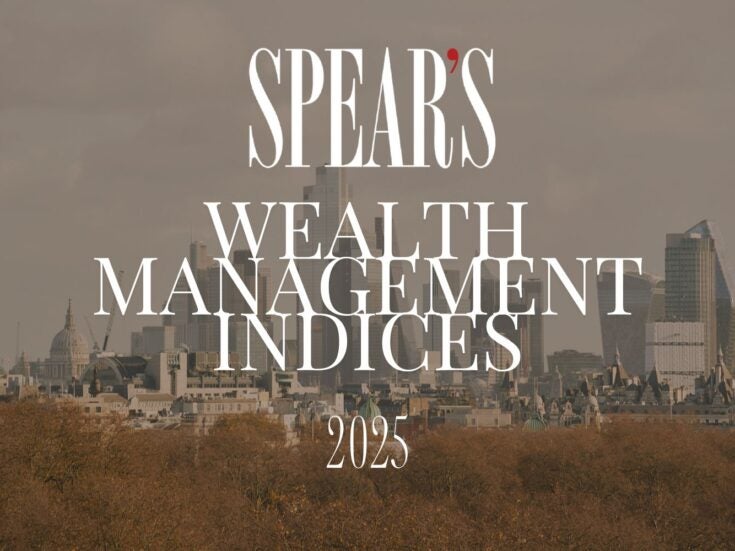
The once clear dividing lines between lawyers, bankers and accountants are starting to blur — with interesting implications for HNWs, says Josh Spero
A LAWYER, AN accountant and a private banker walk into a bar and order a round of drinks. Their client pays.
Such a harmonious assembly across the private client professions is seemingly less likely as all three jostle into one another’s fields, with banks’ growing wealth planning departments creeping into the legal and accountancy spheres and lawyers and accountants at odds. For an HNW stuck in the middle, what used to be clearly defined is now definitely muddled. Who to turn to, and what difference might it make?
As Sophie McBain has observed, ‘Banks are already recruiting top lawyers, who offer private clients recommendations, or any service that just stops short of legal advice — and this hasn’t gone unnoticed.’ The engorgement of wealth planning departments, which do basic tax work or give unbinding opinions on legal matters, certainly has not slipped past lawyers, as one pointed out to me over a languorous lunch.
The substance of his accusation was that because banks are stepping as close to the legal line as they can, without providing advice that can be relied upon (or indeed sued for) in court, they are supplanting lawyers but not providing anything solid in their place. The banks, if the ‘advice’ goes sour, can always claim the client should never have relied upon it in the first place, and such cases have reached the courts.
A private client accountant told a not dissimilar tale, although this time he alleged a more sinister motive when an HNW goes to a wealth planning department. ‘The banks are employing people to sell products. That’s really what they’re after. They’re trying to do a bit of will-writing and then they’ll say, “Have you got an ISA? What’s your pension?” They won’t just offer to provide your mortgage but also to sell your house,’ with a new line of fees. (The lawyer pointed out that lawyers and accountants have a professional obligation to act in their clients’ best interests, unlike banks with their products.) The wealth planners don’t do detailed advisory work, however, so the accountant says he does not feel ‘particularly threatened’.
It turns out that the threat to the accountants is coming from… the lawyers. ‘If there’s one business trying to nick business from accountants it’s solicitors. A lot of the larger firms have set up very sophisticated tax and accounting departments that offer advanced advice.’

Banks, for their part, say that the services they provide quietly elide with those of lawyers and accountants, indeed that they have never sent more business to their confreres. Karina Challons, head of tax and financial planning at HSBC Private Bank, says there is no competition: ‘It’s the reverse: they provide specialist advice on structuring a business or shareholder agreements, and we do tax, insurance, lending, investments on a personal basis. They’ll never be able to provide us with as much work as we can provide them.’
The lawyer said the problem is that wealth planners don’t always know when specialist advice is needed: ‘They often fail to spot an issue which needs to be referred to a lawyer or accountant, or tell the client that something is very straightforward, that there’s no need for external input andâ¯the bank’s standard form will or trust document will suffice.’ This can often be connected to the client wanting to save money by using the wealth planner as their sole source of advice.
Robert MacIntyre, the head of wealth structuring (EMEA) for Merrill Lynch Wealth Management, agrees that they cannot live without one another: ‘It’s symbiotic. We often have them come in to talk to our wealth planners and bankers.’ But he makes a more controversial claim, one which lawyers and accountants do too: ‘We’re often the conduit between the client and the professional community because we speak the same language and we understand the issues the clients have.’
When Challons describes what her department does, the overlap does become conceivable. She stresses, however, that they devolve anything technical to the specialists. It should be seen as ‘an enhancement’, not competition, she says, even as it spreads to further fields; MacIntyre calls it ‘augmenting’.
All three professions stress the central role they can play in creating an HNW’s team. ‘We know the best people,’ says Challons, ‘so we can find the best practitioner.’ Lawyers and accountants boast comprehensive address books, of course, too.
Given that core competencies are still intact — a lawyer cannot invest for you, a bank cannot audit you — why does any of this matter to the HNW? What is at stake is being your first port of call. There is much advantage to be gained by the professional: it gives them a better chance to pitch their services and products to you, to introduce you to their favoured firms, to become your trusted adviser for most matters. Who do you trust to take your hand? As this turf war intensifies, the choice of wealth planner, lawyer, accountant is no longer and — but or.







